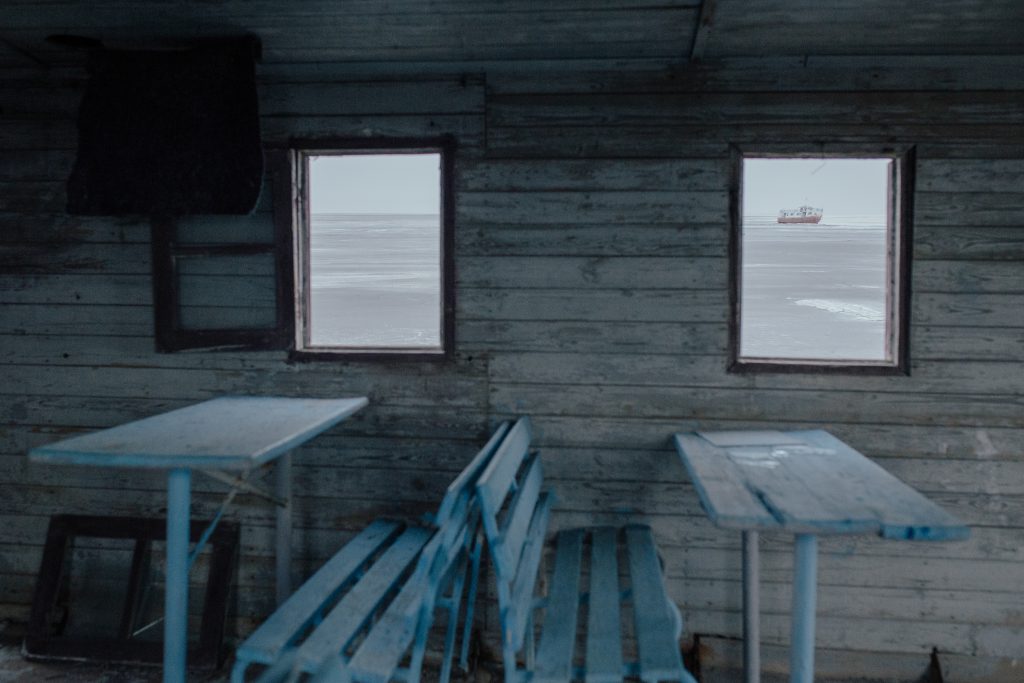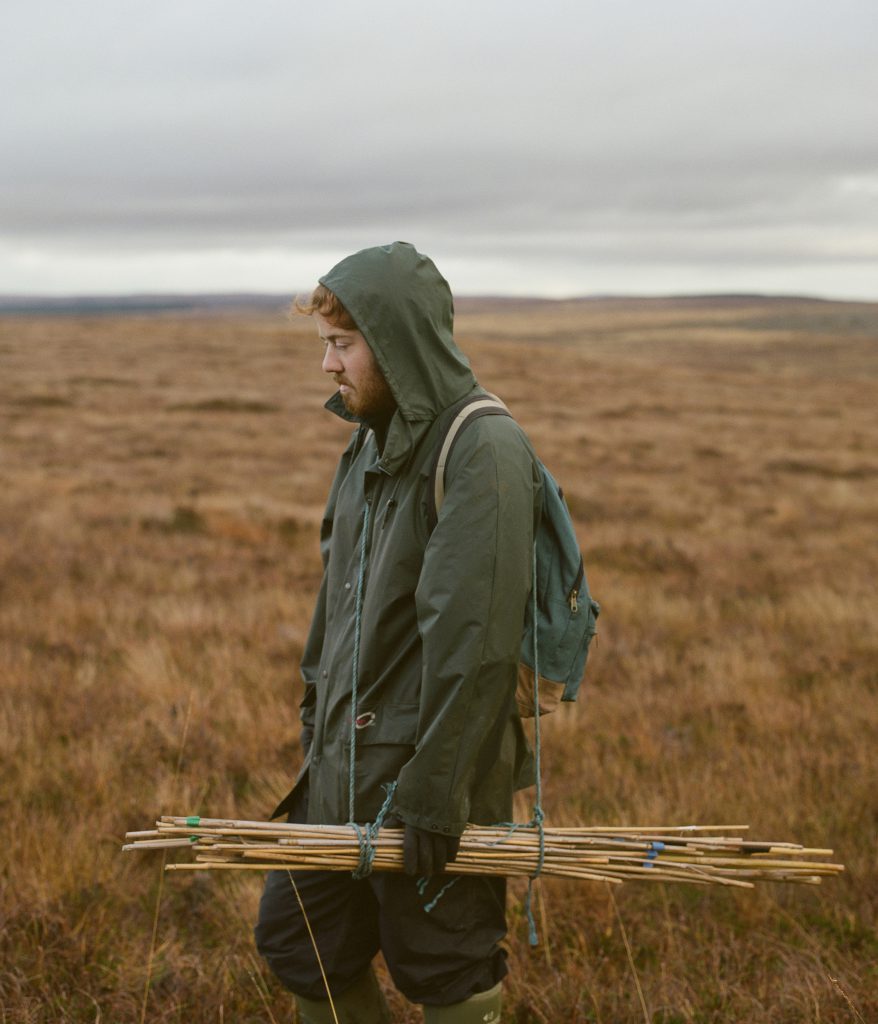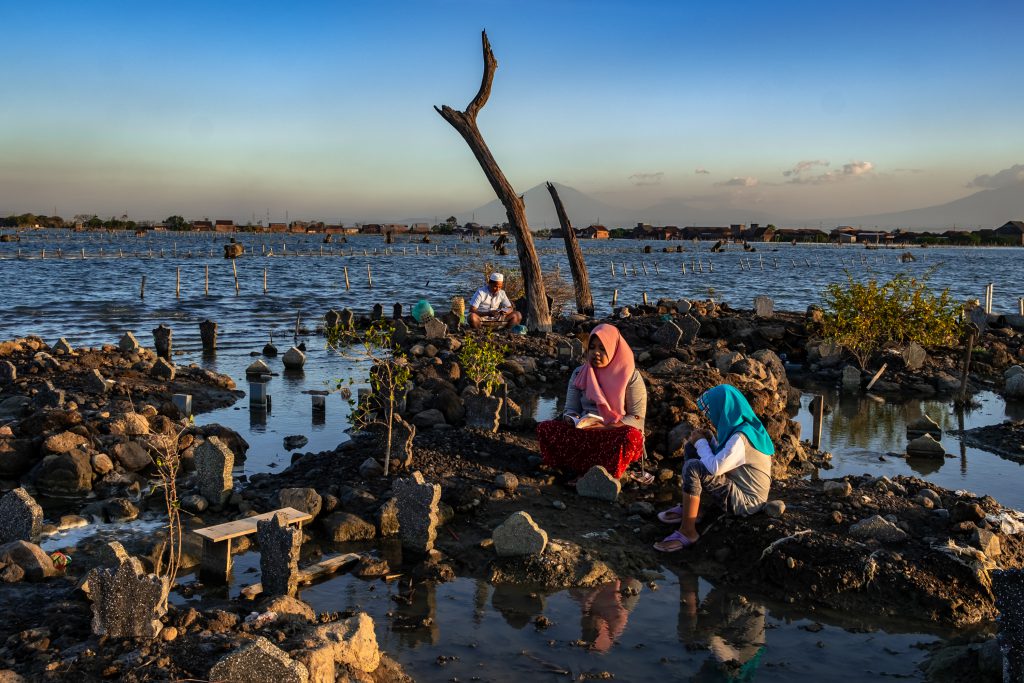
Photo credit: Aji Styawan / Getty Images Climate Visuals Grant recipient
In August 2020, The Literary Platform asked aspiring fiction writers and poets to submit their response to one of four photographs.
Our Climate Visuals team work with a range of photographers to document the changes, impacts and responses to climate change. Our aim is to inspire visual communicators across the world, to move away from clichéd images of polar bears, melting ice caps and factories, to catalyse a new – more compelling and diverse – visual language for climate change. Together, with The Lit, we selected four images from four different photographers, exploring a variety of regions and communities around the world, and their relationship with the changing climate.
The aim of the competition was to showcase some of the ways in which different disciplines and media cross-pollinate. We are therefore delighted to share the winning and shortlisted entries below.
The work of six winning writers – responding to each of the photographs through storytelling or poetry – was originally published in Issue 3 of The Lit.
Solmaz Daryani, from The Eyes of Earth (The Death of Lake Urmia), Iran
 The Eyes of Earth (The Death of Lake Urmia), Iran
The Eyes of Earth (The Death of Lake Urmia), Iran
Photo credit: Solmaz Daryani
- Lake Urmia – located in the northwest of Iran – was once the biggest salt lake in the Middle East.
- Lake Urmia was once home to many birds, ducks, pelicans and flamingoes, as well as a popular destination for visitors.
- During the past 20 years, climatic changes, intensive agriculture and dam construction have combined to transform the lake; approximately 80% of the lake has disappeared.
- The Noah’s Ark was once the biggest pleasure boat on the lake.
Solmaz Daryani; Instagram: @solmazdaryani, Twitter: @SolmazDaryani
Greg Kahn, from 3 Millimeters, Maryland, USA
 Vanishing forests, growing marsh, and ‘For Sale’ signs in front of homes. 3 Millimeters, Maryland, USA.
Vanishing forests, growing marsh, and ‘For Sale’ signs in front of homes. 3 Millimeters, Maryland, USA.
Photo credit: Greg Kahn / Getty Images Climate Visuals Grant recipient
- The Eastern Shore of Maryland is a short drive from Washington D.C. Its position means it was one of the first landed shores for colonial settlers.
- Sea levels here are rising twice as fast as the global average.
- Gradient sea walls, vegetation re-nourishment and education are among the efforts seeking to preserve natural habitat and homes in some locations along the coast; in other places along Chesapeake Bay the rising sea levels are irreversible.
- Property values have fallen sharply in the most vulnerable areas, some have retreated from homes as the marsh land expands.
Greg Kahn, Instagram: @gregkahn, Twitter: @GregKahn
Aji Styawan, from Drowning Land, Demak Regency, Indonesia
- The majority of the small islands among the 17,000 which make up the archipelago nation of Indonesia are only one meter above sea level.
- In Demak Regency, Indonesia, local residents will spend around 5 to 10 million rupiahs a year to elevate their homes.
- The ocean now engulfs thousands of hectares of land in some villages; farmers have become fishermen, as villagers have adapted to survive in different ways.
- In a flooded public cemetery, the residents buried here are submerged by the rising sea that now surrounds their former homes.
Aji Styawan Instagram: @ajistyawan, Twitter: @adjiestyawan
Sophie Gerrard, The Flows, Caithness and Sutherland, Scotland
 The Flows, Caithness and Sutherland, Scotland.
The Flows, Caithness and Sutherland, Scotland.
Photo credit: Sophie Gerrard
- Flow Country is a peatland in the far north of mainland Scotland. Peatlands, a rare and unique habitat across the globe, hold almost 30 per cent of all terrestrial carbon.
- Scotland’s peatland is widely considered to be the largest expanse of blanket peat bog in the world and the principal terrestrial carbon store in the UK.
- In the Flow Country, incentives to make productive use of the peatland led to extensive forestry which dried and degraded the ecosystem.
- Canes are used to create dams that maintain water levels in the Flow Country, helping restore the natural habitat.
Sophie Gerrard Instagram: @sophiegerrard, Twitter: @sophiegerrard_
Winning poet
Michaela Moclair for Abrasion
Winning fiction writer
George Harrison for Holding Out
Shortlisted poets
Clare Dwyer for Flow Country
Keiran Potter for Stolen Sugar
Shortlisted fiction writers
Clare Elwell for Salt Lakes
Sinead Price for Captain of the Sea


